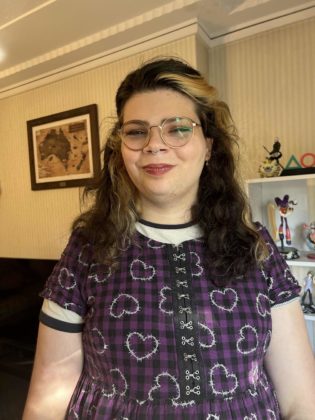Women in gaming have struggled to affirm their space in an industry with a pitfall of some stubborn and spoiled men. They’re constantly fighting for a place and why should they?
This week I attended a talk at Microsoft’s Flagship store in Sydney that followed a panel on ‘Women in Gaming’. The panel was to be moderated by Steph Panecasio, a journalist across recognisable publications such as Kotaku Australia and Pedestrian. Along for the journey were three wonderful members in the scene. Rae Johnston of Junkee, Anais ‘Naysy’ Riley, an ever-growing Twitch streamer and Stacia Grooby, a marketing and communications manager at Gfinity Australia. The lineup looked to be full of individuals that were well equipped and the talk certainly proved that.

A larger (but big highlight) portion at the beginning of the talk spoke about the idea of impostor syndrome. Rae, Naysy and Stacia all affirmed from the get go how easy it is to fall into this syndrome’s trap and how hard it is to get out of. Stacia spoke of an interesting aura, one that likely women in all industries experience. She detailed how she could enter rooms and tell how she was being judged and questioned at how qualified she is for her job role in those opening seconds. An important footnote she included at the end is how helpful it is to constantly affirm herself that she deserves this. She deserves to take up the space in the industry that she currently is because of her hard work.
Rae and Naysy support this further. Rae (who has worked in gaming media for over 10 years), believes she has finally beaten impostor syndrome because she recognises not everyone knows what they’re doing 100 percent of the time, nor does anyone know the answer to everything. “If you don’t question yourself, you begin to lose that spark. You’re doing fine, everything’s gonna be okay,” Rae powerfully reminds the audience in the end of her response. Naysy also offers a very thoughtful insight into the power impostor syndrome holds over others. She emphasises the importance of friends and peers as mentors, not just the higher-aboves of the industry, and how this can help to feel accepted. She also issues caution, stating how companies profit off this impostor syndrome. This comment holds weight and value. It’s a reminder of the prevalent issue of workers not being seen as people and instead just ways for the company to earn money, a large issue that’s existed in careers for forever.

“Women have a place in games, obviously.”
A topic that was due of course did come up: boundaries and issues with being a woman or marginalised individual in gaming. It was a conversation that was sparked up by a question from another trans person, much like myself. The panelists were asked how they not only overcome these boundaries but also appeared to be seeking validation. Were these boundaries and things that prevented them from existing in these spaces actually there? Or were they just in their head? Stacia, Rae and Naysy offer interesting points for this.
Rae affirmed the barriers weren’t just in the audience member’s head, and that exclusion in these spaces exists and must be challenged. Naysy stressed the importance of starting up your own space. Alternatively, finding other spaces with more like minded people was just as good, a comment that particularly hit home for me. It resonated with me because this was the same home I’d found in Checkpoint in the four months I’ve been writing here, it helped exponentially and its importance is undeniable. “You’ll be happier the sooner you don’t care what other people think,” Naysy states.
“Women have a place in games, obviously.” Stacia says. She goes on to also recall some of the history in gaming. “Games were never made with a gender in mind. It was after the near crash and end of the industry with the GFC that it became a self fulfilling prophecy that the industry became largely targeted towards men. Gender shouldn’t be a barrier, it should just be your love of games that matters.”

And with that, the panel was over. The panel was both so beautifully organised and handled that it made me reflect a lot. It made me think of the ever present toxicity in gaming , it made me think of how important it is to rise above that. To be a woman or minority and rise above the majority, to demand respect for the space they so rightfully take up, its more vital and empowering than ever. “Women in Gaming” shouldn’t be a contentious issue, and it’s the same with any minority. Enough is enough with the divide, individuals like those on this brilliant panel re-emphasised this and made that much clear. More needs to be done, and soon.





